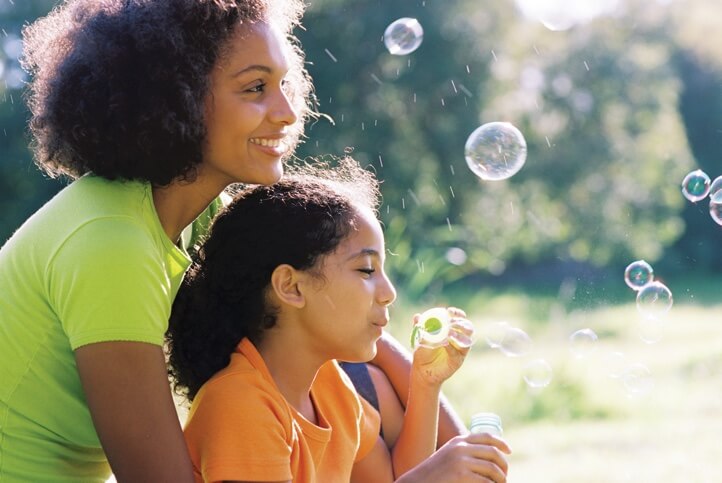It’s Okay NOT to Be Okay
The current situation with the coronavirus (COVID-19) has temporarily disrupted our daily lives, and we have all been asked to make difficult changes to protect the health and well-being of our children, families, and communities.
Children are no longer learning in the classroom. Parents/caregivers might be working from home or furloughed. Family and social gatherings have stopped. Birthdays, holidays, and Spring Break vacation plans have all been put on pause. Physical distancing is the new norm. These changes can be a source of stress and anxiety for your children and you as parents and caregivers.
While we all do our best to navigate this trying time, we want you to know that you are NOT alone. We are all in this together, and it is okay to not be okay! It is important we understand these life changes can increase feelings of displacement, anger, sadness, and grief for a lost sense of normalcy in children. Try out these tips and resources while talking to your kids about their feelings and emotions and how to process them in a positive way.
- Focus on the positives and the things you can control
- Practice self-care, gratitude, daily affirmations, healthy emotional processing, and maintaining a positive attitude are all things we CAN control during this time of uncertainty. Mindfulness activities are great tools for children and adults to utilize. Follow this link for free mindfulness activities to do with kids: 5 Free Mindfulness Activities
- Create daily isolation wellbeing check-ins. This serves as an avenue to encourage children in verbalizing their emotions and provides feelings of social connectedness.
- Limit screen time and media exposure. This causes sensory overload inducing anxiety. Information regarding COVID-19 should be communicated by parents/caregivers and with discretion.
- Develop a new normal. Organize your day and personal space by creating and maintaining new schedules and routines. This helps restore a sense of normalcy and calming feelings for children.
- Take care of your body
- Physical and mental health go hand in hand. Eat healthy well balanced meals, and drink plenty of water. Click this link to access fun and nutritional meal ideas that you and your children can cook together: Healthy Kids Recipes
- Exercise. It can reduce stress, anxiety, anger and frustration! Get outside, take a walk as a family. Fresh air and sunshine are needed! Follow this link for free indoor and outdoor physical activities: Physical Activities for Kids
Lastly, if you are concerned about the Mental Health status of your child, please reach out for help! Contact your primary care physician or text BEACON to 741741 to access Beacon Health System’s Crisis Text Line for resources. In the case of an emergency always call #911. Stay tuned for more tips and resources later this month. Be Well!





